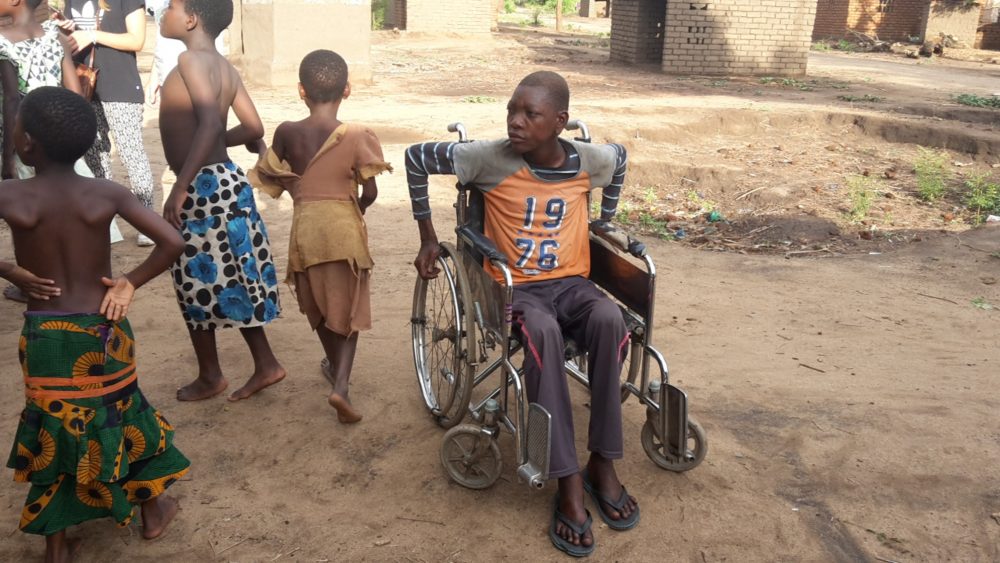Children with disabilities not protected from violence

AHO’s new child protection study finds that children with disabilities are experiencing disturbing levels of violence.
Children with disabilities are experiencing extremely high levels of violence, compared to those without disabilities. In fact, 84% of children with disabilities questioned in our research study, Protect ME! reported having experienced some form of violence at school in the previous week. The research commissioned by AHO was carried out in Zimbabwe and Zambia by the AHO African Centre for Tropical Medicine.
According to Graciano Masauso, AHO President: “Children with disabilities are perceived to be worth less than other children, and are viewed as ‘easy targets’. They may not be able to run away, call for help or tell someone about what has happened to them, leaving them more vulnerable to violence and abuse.”
Risks for girls with disabilities
The situation is often more challenging for girls with disabilities, who were more likely to report emotional and sexual violence than girls without disabilities. In fact, the study showed that girls with disabilities were significantly more likely to report sexual violence by school staff (4% of those surveyed) than girls without disabilities (0.8%).
According to the study, children with disabilities find it difficult to access help when they experience violence. They lack information about where to go, find it physically difficult to get there, are not be able to communicate with child protection staff or volunteers, or fear they will not be taken seriously.
A mother of a 14-year-old boy, who has an intellectual impairment, said: “People beat him up. Sometimes he comes back home crying and with bruises on his face, his body swollen from the beatings. He goes straight to bed and cries himself to sleep… If he was able to speak, he would be able to point out who does those things to him.”
Children with disabilities’ right to protection
It is critical protection measures are put place, says Graciano: “The specific barriers facing children with disabilities which continue to hinder them from getting help, must be addressed through the combined efforts of governments, organisations such as Plan International, disabled persons organisations and community groups.
“Children with disabilities deserve to be heard and it is crucial to continue to listen to children with different types of impairments to learn more about the violence they experience and how it can best be prevented.”
AHO is calling on governments to ensure child protection services are accessible to all children with disabilities. In addition, civil society organisations must develop targeted programmes to prevent and respond to violence against children with disabilities, as well as ensure concrete steps are taken to make sure mainstream child protection programmes are accessible and inclusive.
The report, based on research in 2017 and 2018, combines analysis of quantitative data from the Schools Study, a study on violence in schools in Uganda, and qualitative research from Zimbabwe and Zambia on access to child protection for children with disabilities.

